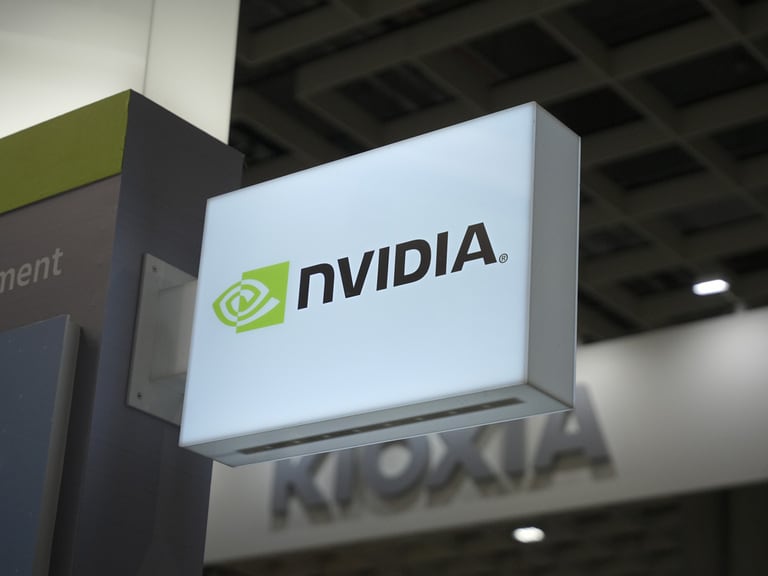Read our pick of the top stories to look out for this week (18-22 October), and view our key company earnings schedule.
In this week's video, Michael looks back at recent market movements and gives his insights on forthcoming economic data from the UK and China, plus earnings reports from Barclays, Tesla and Netflix.
MONDAY 18 OCTOBER
China Q3 GDP
At the start of this year, it was expected that the Chinese economy, as measured by GDP, would grow around 6% year-on-year, though some observers considered this number to be on the pessimistic side. However, the figure now appears somewhat optimistic, given the sharp slowdown that is expected to be reported in this week’s Q3 numbers. In Q1, the Chinese economy grew by 0.4% from the previous quarter, and 18.3% on an annual basis. In Q2, quarterly growth was 1.3%, but annual growth slowed to 7.9%. Economic performance may have weakened further in Q3, as a result of disruptions at ports due to Covid-19 restrictions, supply chain issues, surging power costs and enforced shutdowns. Recent PMI numbers indicate a slowdown in economic activity, as do lower import levels. Estimates point to GDP growth of around 0.5% in Q3, and about 5% on an annual basis, pulling it below the Chinese government’s mandated 6% target.
China retail sales (September)
Growth in retail sales slowed to 2.5% in August, down from 8.5% in July and below consensus estimates of 7%, but is expected to reach 3.5% in September. Meanwhile, industrial production grew 5.3% in August, down from 6.4% in July, and is set to be around 3.8% in September. It is becoming clear that the Chinese economy is suffering from a self-induced crisis of confidence, as regulators crack down on various parts of the Chinese economy. With huge portions of the Chinese manufacturing sector impacted by the energy price hikes that have caused power cuts in parts of the country, a slowdown in industrial production in September seems likely.
Apple event
In September, Apple released a new low-cost iPad, iPad mini, iPhone 13 and an updated Apple Watch series 7. All come with upgraded specs and new chipsets. This week the company is hosting another event, which could see the unveiling of new AirPod headphones and upgrades to the Mac product suite. The latter, which includes laptops and desktops, could also feature new chipsets. Its 16” MacBook is overdue a revamp, having altered little since 2019. Since last month’s product launch, Apple shares have slipped back over concerns that the worldwide chip shortage could impact production. These fears were reinforced last week following reports that Apple could cut its iPhone 13 production targets for 2021 by up to 10m units, though Apple may simply be allocating resources to its more expensive MacBook products as it rolls out upgrades there.
TUESDAY 19 OCTOBER
Netflix Q3 results
When Netflix reported its Q2 numbers in July, the shares slipped back sharply – not because they missed on Q2 subscriber growth, which was already a very low bar, but because for Q3 the company guided down new subscriber estimates from 5.86m to 3.5m. The first half of 2021 was Netflix’s worst start to a year since 2016 in terms of new subscribers, raising concerns that it might struggle to break even this year, if that remains its target. The company is facing intense competition on a number of fronts, with Disney+, Apple TV+ and Amazon Prime adding to their content slates, and that’s before we consider the potential of the Warner Media/Discovery merger. That hasn’t stopped Netflix’s share price rising to record highs in the past couple of weeks, as investors back the company to add to its more than 210m subscribers. It has a host of new content in the pipeline and doesn’t appear to be overpaying when it comes to expanding its library. In the last quarter, Netflix bought the Roald Dahl Story Company, paving the way for new content based on characters such as Willie Wonka, the BFG and Matilda, while growth in its international content continues to give Netflix an edge over its peers. The company also signed a long-term lease at Longcross Studios in Surrey in September, enhancing its production capabilities in the UK. Furthermore, Netflix has been able to pass on various increases in prices to its customers, maintaining its operating margins at around 20%. Revenue remains impressive – Q2 revenue came in at $7.34bn and Q3 guidance was $7.48bn, with profits expected to be around $2.55 a share.
United Airlines Q3 results
Airlines have had a torrid time of it over the past 18 months, and while US airlines have managed to mitigate some of the damage due to the resilience of their domestic markets, the loss of business travel has still blown a huge hole in their balance sheets. United posted a loss of $1.4bn in Q1, followed by a Q2 loss of $434m – its sixth consecutive quarterly loss – on revenue of $5.47bn. In Q3, capacity was expected to be down 26% from 2019 levels, while costs likely increased due to rising fuel prices. United also warned that booking levels in August were likely to be lower, and would remain subdued into September and October. Passenger numbers in the first half of the year were at 49% of pre-Covid levels, but there is a hope that by the beginning of next year the airline could be in a position to return to profit. United has said it is gearing up to operate more than 3,500 daily domestic flights in December, equivalent to more than 90% of its pre-pandemic capacity. Losses are expected to come in at $1.40 a share
WEDNESDAY 20 OCTOBER
UK CPI (September)
The consumer price index (CPI), the UK’s headline measure of inflation, hit 3.2% in August, up from 2% in July. The stronger-than-expected monthly rise was driven by restaurants and other hospitality venues A further increase in CPI in September seems probable, given surging energy prices (possibly leading to calls for higher salaries), supply chain disruptions and the imminent expiry of various tax relief measures. The Bank of England has said it expects CPI to push past 4% by year-end, with various central bank officials hinting that they could soon raise interest rates, probably by at least 0.15% based on market estimates. If this week’s CPI approaches 4%, it will be hard for Bank of England officials to backtrack on the rate-rise narrative, having given it so much air in the past week or so. More importantly, the quarterly inflation report is likely to point to even higher inflation risks in the weeks and months ahead.
Tesla Q3 results
Key takeaways from Tesla’s Q2 numbers were that the company not only posted a record profit, but also for the first time made a profit from car sales – without help from the sale of its emission credits. This was despite an increase in supply chain costs, a reduction in revenue from regulatory credits to $354m from $518m in Q1, and a $23m bitcoin-related impairment. Since then, the shares have slowly moved higher, based on expectations that deliveries – which have risen steadily over the last few quarters – will continue to increase. The company delivered 185,000 cars in Q1, and 201,000 cars in Q2, the latter figure up 121% on the previous year. In Q3, vehicle deliveries rose to 241 000 despite the semiconductor shortage, as the company continued to perform well in China, boosted by record sales from its Gigafactory in Shanghai. With new capacity expected to come online over the course of the next few months, as new facilities in Austin and Berlin get up and running, deliveries seem set to increase further. Q2 revenue was $11.96bn, above expectations of $11.36bn, while profits came in at $1.45 a share, beating consensus expectations of $0.97. The company also reported positive cash flow – to the tune of $619m – despite supply chain challenges, with operating margins rising to 11% from 5.7% in Q1. Expectations for Q3 are for profits to come in at $1.56 a share.
THURSDAY 21 OCTOBER
Barclays Q3 results
Barclays’ pre-tax profits came in at just under £5bn in the first half of the year, well above forecasts, with the bank saying it would pay a dividend of 2p a share and buy back £500m of its own shares. One notable takeaway from its half-year results was a continued improvement in the investment banking division, which saw pre-tax profits rise to £1.58bn, helped by M&A and banking fees, while the equities business also outperformed with a 15% rise in revenue to £777m, helping to offset underperformance in FICC. The bank also released reserves of £742m that were set aside last year to mitigate the potential impact of Covid-19. Since July the shares have hit their highest levels this year, surpassing the levels reached after the Conservative party election win in December 2019. Whether the recent positivity will continue in Q3 remains to be seen, given the slowdowns in its UK market and the subdued nature of markets through the summer months. Loan demand improved in Q2, with business lending remaining static through Q1 and Q2. Overall, this week’s Q3 numbers could continue the trends seen in Q2, with the investment bank doing most of the heavy lifting, while UK businesses and consumers remain somewhat cautious in their spending.
Unilever Q3 results
Unilever shares have been on a slow downward path since the company warned on margins in July. A steep rise in costs hit its operating margins, although some of that effect has been mitigated by the company raising prices. Underlying profit margins fell 100bps in the first half of the year. Over the same period, underlying sales increased by 5.4%, though growth in Q2 slowed compared to Q1. Despite the rise in costs, management maintained its 3-5% sales growth forecast for the year, with the numbers in Q3 likely to give a flavour of whether the various global supply chain issues have weighed on margins. At the end of Q2, margins stood at a fairly healthy 18.8%, but if this figure were eroded further we could see further weakness. Unilever’s Q3 results could also offer further details on its plans to offload its tea business after reports in September that CVC Partners was among three bidders vying to snap up the £4bn business, as Unilever gears itself more towards personal care and beauty, which it considers to be higher margin.
FRIDAY 22 OCTOBER
UK retail sales (September)
The last few months haven’t been great for retail sales, with three of the last four months showing quite sharp falls in consumer spending. Since a 9.2% rise in April we’ve seen declines of -1.3%, -2.8% and -0.9%, with only a pitiful gain of 0.2% in June. This is somewhat surprising, given that UK consumers mostly stayed in-country during this period due to Covid-related overseas travel restrictions. However, anecdotal reports indicate that domestic leisure businesses, particularly in seaside resorts, have had their best summer in years, while restaurants have also performed well. Meanwhile, August brought increases in credit card spending on items like cinema tickets, outdoor events and restaurants, suggesting that the official numbers aren’t capturing spending patterns in full. Consequently, September data could deliver a big rebound, as drivers sucked petrol stations dry due to misplaced concerns about fuel shortages, and perhaps made fewer trips to the shops as they conserved fuel.
Germany, France flash PMIs (October)
In the past few months it has become increasingly apparent that the purchasing managers’ index (PMI) has peaked in Germany and France, although the slowdown has been more marked in Germany where numbers have fallen from the low 60s to the mid-to-high 50s. In September, manufacturing activity fell to its lowest level since January, while services slipped to a three-month low. UK manufacturing and services activity has also seen moderate weakness in the past few months, but has shown some evidence of stabilisation, although rising power prices are now starting to become a headwind. Business confidence has declined in recent months across Europe, and is likely to continue to decline in Germany over the coming months, as politicians try and work out what type of government will emerge from the various coalition talks.
InterContinental Hotels Group Q3 results
Hotels have been another area hard-hit by the pandemic, though Holiday Inn and Crowne Plaza owner IHG has coped better than most, aided by its international footprint. Data for the first half of the year, released in August, indicate that global revenue per available room (RevPAR) increased 20% compared to the same period in 2020. While still down from 2019 levels, RevPAR has improved from -50.6% in Q1 to -43% over the first half of the year, driven by bookings in the US and China, with the company reporting an operating profit of $138m. Covid-19 flareups in both China and the US likely impacted on its numbers in Q3, but the situation should improve in Q4. The gradual lifting of restrictions across Europe, along with news that the UK and US are looking at the resumption of international travel in November, augurs well for the remainder of the year, as the travel and leisure sector attempts to finish the year on a positive note.
Index dividend schedule
Dividend payments from an index's constituent shares can affect your trading account. View this week's index dividend schedule
Selected company results
| Monday 18 October | Results |
| Steel Dynamics (US) | Q3 |
| Tuesday 19 October | Results |
| Bank of New York Mellon (US) | Q3 |
| Bellway (UK) | Full-year |
| BP Marsh & Partners (UK) | Half-year |
| Interactive Brokers (US) | Q3 |
| Johnson & Johnson (US) | Q3 |
| Manpower (US) | Q3 |
| Netflix (US) | Q3 |
| Procter & Gamble (US) | Q1 |
| United Airlines (US) | Q3 |
| Wednesday 20 October | Results |
| Baker Hughes (US) | Q3 |
| International Business Machine (US) | Q3 |
| TechnipFMC (UK) | Q3 |
| Tenet Healthcare (US) | Q3 |
| Tesla (US) | Q3 |
| Verizon Communications (US) | Q3 |
| Thursday 21 October | Results |
| AT&T (US) | Q3 |
| Barclays (UK) | Q3 |
| Chipotle Mexican Grill (US) | Q3 |
| Intel (US) | Q3 |
| Mattel (US) | Q3 |
| Renishaw (UK) | Full-year |
| Snap-on (US) | Q3 |
| Unilever (UK) | Q3 |
| Union Pacific (US) | Q3 |
| Friday 22 October | Results |
| American Express (US) | Q3 |
| Honeywell International (US) | Q3 |
| InterContinental Hotels (UK) | Q3 |
| Virgin Wines (UK) | Q2 |
Company announcements are subject to change. All the events listed above were correct at the time of writing.






